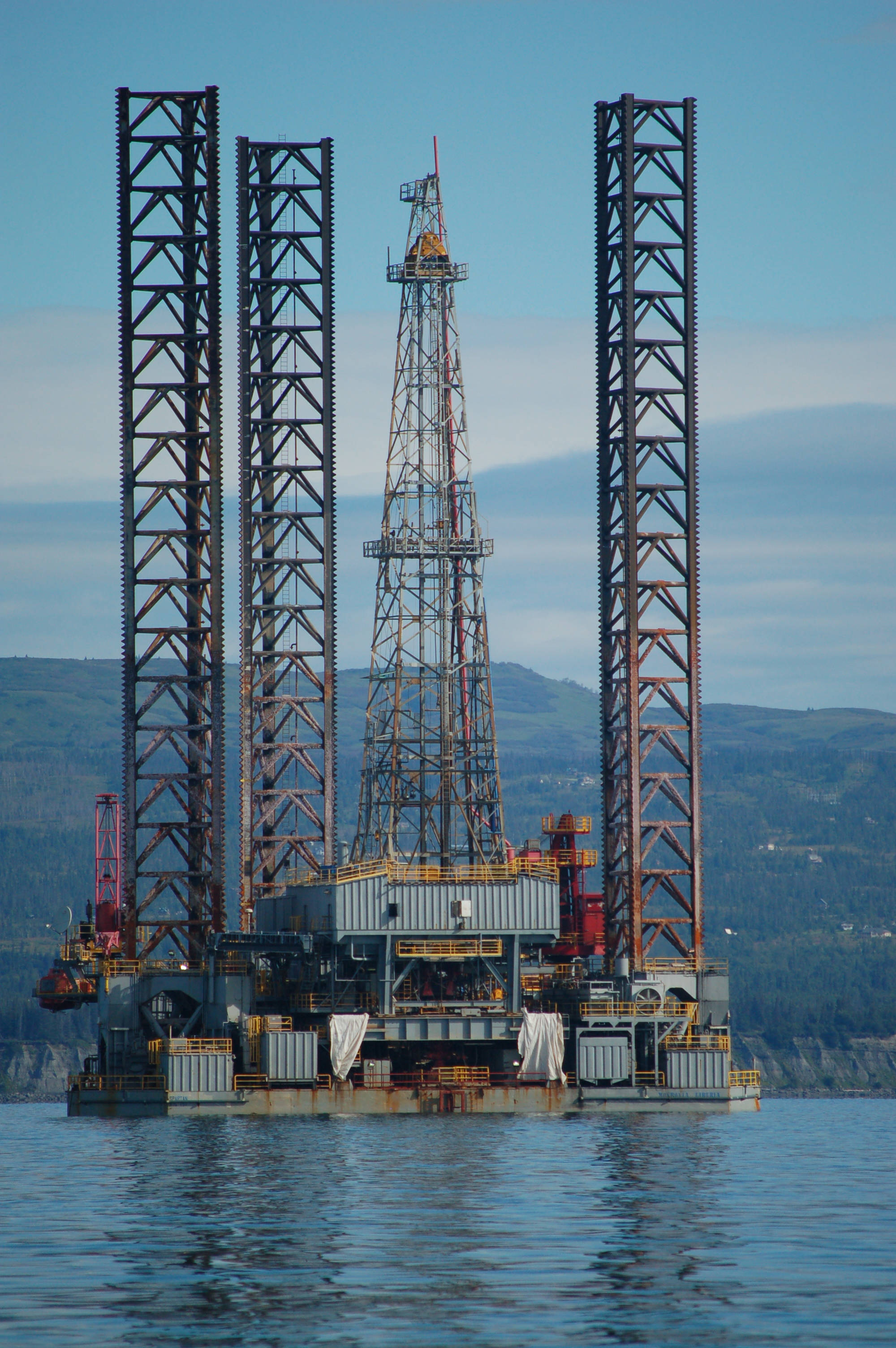The U.S. Justice Department announced a settlement and agreement April 4 for a $10 million fine against Houston-based Furie Operating Alaska LLC over the company’s move of a jack-up rig from the U.S. Gulf of Mexico to Cook Inlet in 2011 in violation of the U.S. Jones Act.
The Jones Act requires cargoes shipped between U.S. ports to be done with American-flagged vessels. Escopeta Oil and Gas, Furie’s predecessor company, used a Chinese-operated heavy-lift ship to move the Spartan 151 rig from the gulf to Vancouver, British Columbia, and eventually to Alaska.
Although U.S.-flagged tugs towed the rig from British Columbia to Alaska, the U.S. Department of Homeland Security, which enforces the Jones Act, ruled the law still applied even though the journey was broken with the stop in Canada.
“Resolution of this case demonstrates that the Jones Act will be actively enforced and that an intentional violation will not be rewarded,” acting Alaska U.S. Attorney Bryan Schroder said in a statement. “The settlement also provides closure to Furie and is designed not to undermine its ability to bring natural gas to market in Southcentral Alaska.”
The company was aware at the time that the move was in violation and proceeded anyway, the Department of Homeland Security said when it originally assessed a $15 million fine on the company.
Furie, the new name of Escopeta after the company changed ownership, filed a lawsuit contesting the amount of the fine. It argued that there were no U.S. flagged vessels capable of rounding South America because the rig was too big to pass through the Panama Canal.
The company used the Spartan 151 to drill offshore exploration wells in Cook Inlet and to assist in construction of gas production facilities based on discoveries Furie made. Furie is no longer using the rig, having switched to a larger, foreign-built jack-up, the Randall Yost, for ongoing offshore construction and drilling.
The Spartan 151 is now in storage in Seward.
A settlement closes an interesting chapter in Cook Inlet’s recent history. Danny Davis, former president of Escopeta, originally secured a Jones Act waiver in 2006 from President George W. Bush’s administration to move a U.S.-owned jack-up from the Gulf of Mexico to Alaska.
Davis’s plan was delayed due to financing problems and when the effort was renewed in 2010 the federal administration had changed and the Department of Homeland Security changed its position and would not renew the waiver.
Davis decided to begin the lengthy move with the heavy-lift vessel, which involved a route through stormy waters around the tip of South America, meanwhile hoping he could still negotiate the deal with Homeland Security.
Davis hoped that breaking the journey would help his case although the transfer to U.S. tugs in British Columbia waters was done for operational reasons.
The Spartan 151 finally arrived in Alaska, drilled and made gas discoveries that were able to alleviate concerns by Alaska utilities of an impending gas shortage in Southcentral Alaska due mainly to lack of new exploration.
In 2015, Furie installed the first new production platform in Cook Inlet since the 1980s and has signed several gas supply deals with local utilities since.
Furie signed a deal in March with Chugach Electric Association that will run until 2033 to supply at least 20 percent of the utility’s needs, with an option to double its purchases of gas.
The company also plans to explore for oil this summer.
The political furor over the Jones Act fine, however, resulted in Davis being replaced as president and Escopeta being taken over and renamed by its financiers, which are based in Germany.
Tim Bradner is co-publisher of Alaska Legislative Digest and a contributor to the Journal of Commerce. He can be reached at timbradner@gmail.com.

